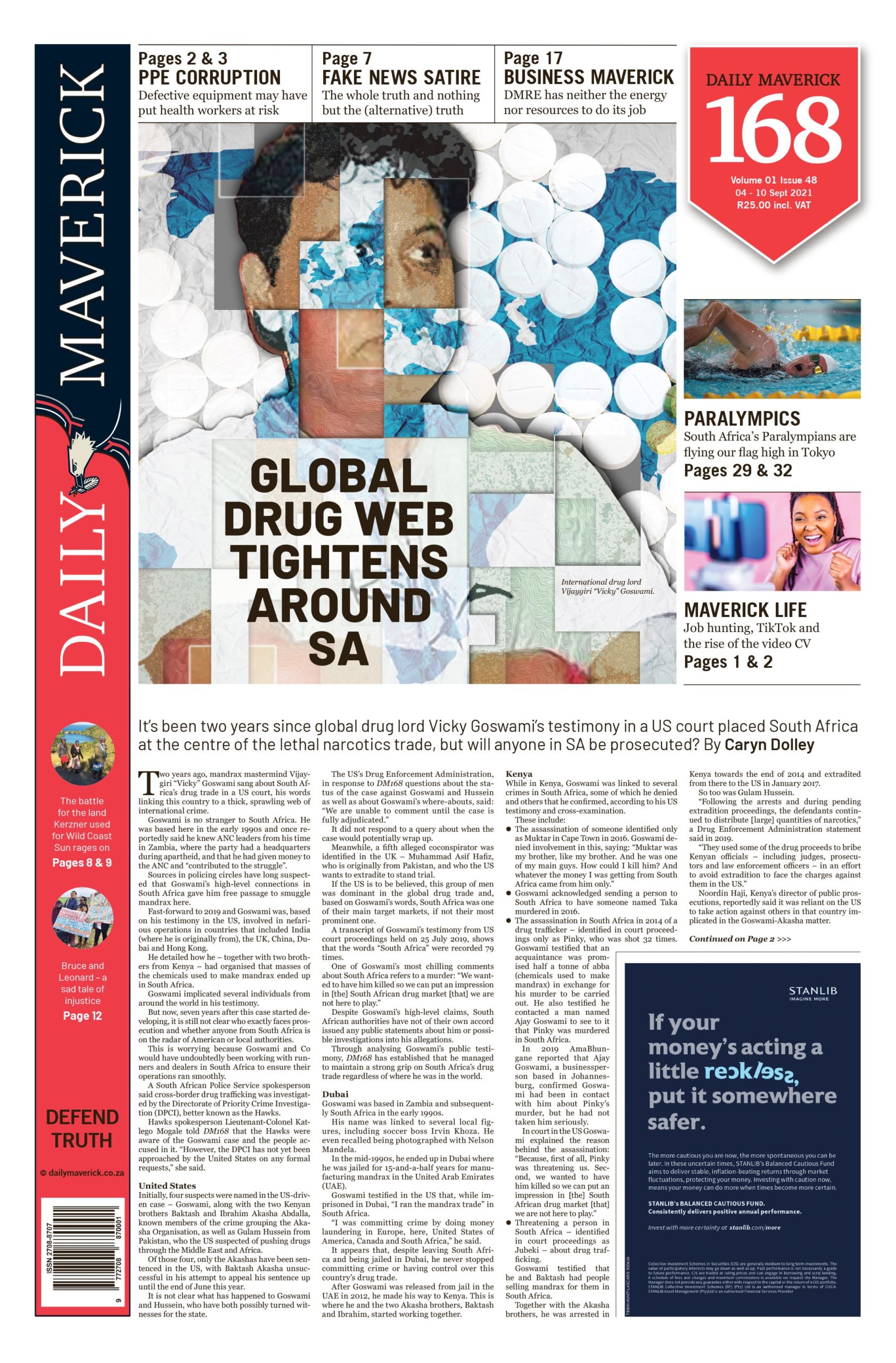First published in the Daily Maverick 168 weekly newspaper.
“When people begin to ignore human dignity, it will not be long before they begin to ignore human rights.” – Gilbert K Chesterton. A sound warning that seems apt as the country tunes in to see former state officials tap-dance their way through taking responsibility for the deaths of 144 mental healthcare patients in 2016.
After two false starts in July and at the beginning of August as a result of the state’s legal counsel not being adequately prepared, the Life Esidimeni inquest resumed on 30 August.
It is actually quite ironic that the word “Esidimeni” means “in dignity” and yet the mental healthcare users who died during the marathon project were treated with anything but that. Dignity is an intrinsic right of human beings because it acknowledges a person’s worth. Our Constitution has even asserted that it is the highest of all the human rights that we have. Dignity speaks to a sense of self-respect and self-worth, physical and psychological integrity and empowerment.
Yet the actions of the Department of Health were in contravention of this.
During the inquest on 1 September advocate Harry Van Bergen referred to three things that are said to be the most stressful for humans: dealing with the death of a loved one, dealing with divorce and dealing with moving house, a sentiment I had heard before but still found quite striking, particularly in the case of a mental healthcare patient.
In all the discussions and testimony during the inquest nobody had drawn to the fore the point of how the transfer of patients to a new environment could be traumatic, even more so their transfer without the necessary preparations for them.
The former managing director of Life Esidimeni, Basuku Mkhatshwa, was at pains to explain that patients needed to first familiarise themselves with the environment that they were going to and to build relationships with the people in that environment in order for them to adjust. Without this, already vulnerable patients are ill at ease and may become a threat to themselves and those around them.
If moving is stressful for people not in mental healthcare, can you imagine what it must be like for a mental healthcare patient?
During the inquest proceedings, lawyers for officials (most of whom are medical professionals) implicated in the Life Esidimeni tragedy argued that the officials were simply acting on instructions from the National Department of Health and that they feared losing their jobs should they defy these instructions.
A most peculiar assertion as a defence, in my opinion.
To my mind, should there ever be a work instruction that endangers the lives of people, particularly the lives of those dependent on others to make health and wellness decisions on their behalf, that instruction would have to be defied.
If a decision is unethical and you as a professional can foresee potentially disastrous outcomes, it’s your job to red-flag it. Trading someone else’s life for your own livelihood is wrong.
This is what led Mkhatshwa to ask incredulously: “Are we clinicians or what? Are we just going to implement instructions without question[ing] the instructions and being able to do whatever we need to do for the best interests of the mental healthcare users?” The Department of Health states that its vision is “a long and healthy life for all South Africans” and “to improve health status through the prevention of illnesses and the promotion of healthy lifestyles and to consistently improve the healthcare delivery system by focusing on access, equity, efficiency, quality and sustainability”.
The Life Esidimeni tragedy shows little evidence of officials embodying this and they should not only hang their heads in shame but also do an overhaul of the kinds of people they have in decision-making positions.
We cannot have people who are unquestioning of decisions that are not sound and then vilify those who dare to speak out. That is reflective of a society on a precarious road to implosion.
The 144 mental healthcare users who died deserved better than the fate they were dealt and the families who loved them miss them to this day. How does one preside over such devastation without a crisis of conscience?
We cannot and must not normalise the abnormal, neither should we desensitise ourselves to such occurrences simply because they did not happen to our loved ones or that we are not public healthcare users. The inquest and also state of the Department of Health is showing the malaise that has set in in our health system.
While the officials may be able to get the best legal counsel money can buy to “get them off the hook” technically, it does not erase the impact of their actions. DM168
This story first appeared in our weekly Daily Maverick 168 newspaper which is available for R25 at Pick n Pay, Exclusive Books and airport bookstores. For your nearest stockist, please click here.

















 Become an Insider
Become an Insider
It is time for people involved in this human disaster to be exposed and punished.
No carpet is large enough for them to be swept under.